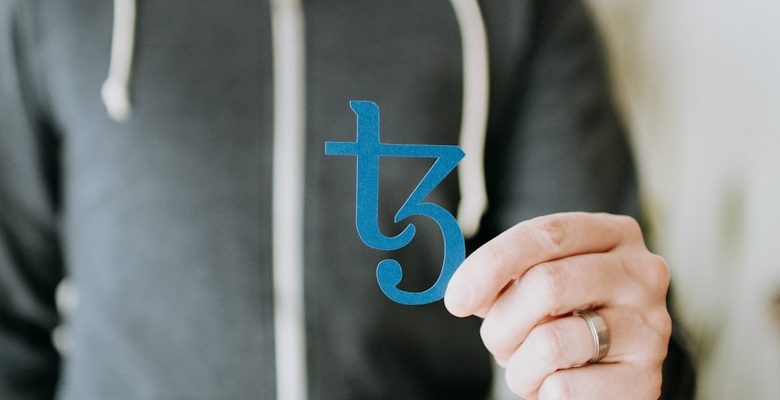The Role of zk-Rollups in Scaling Blockchain Networks

- Understanding zk-Rollups and their impact on blockchain scalability
- How zk-Rollups are revolutionizing the way blockchain networks operate
- Exploring the benefits of zk-Rollups in addressing scalability challenges
- The role of zero-knowledge proofs in zk-Rollups for enhancing blockchain scalability
- Case studies showcasing the successful implementation of zk-Rollups in scaling blockchain networks
- Challenges and future prospects of zk-Rollups in the realm of blockchain scalability
Understanding zk-Rollups and their impact on blockchain scalability
zk-Rollups are a promising scalability solution for blockchain networks. They allow for more transactions to be processed off-chain, reducing the burden on the main chain and increasing overall throughput. By using zero-knowledge proofs, zk-Rollups are able to bundle multiple transactions into a single proof, significantly increasing efficiency.
One of the key benefits of zk-Rollups is their impact on blockchain scalability. By moving transactions off-chain and only submitting proofs to the main chain, zk-Rollups can greatly reduce congestion and lower transaction fees. This can lead to a more seamless user experience and wider adoption of blockchain technology.
Furthermore, zk-Rollups provide increased privacy and security for users. Zero-knowledge proofs ensure that transaction details remain private, while still being verifiable by the network. This not only protects user data but also enhances the overall trust in the blockchain network.
Overall, zk-Rollups have the potential to revolutionize blockchain scalability and improve the efficiency of blockchain networks. By leveraging zero-knowledge proofs, zk-Rollups offer a secure, private, and scalable solution that could pave the way for the mass adoption of blockchain technology.
How zk-Rollups are revolutionizing the way blockchain networks operate
zk-Rollups are a groundbreaking technology that is transforming the way blockchain networks operate. By utilizing zero-knowledge proofs, zk-Rollups enable users to bundle multiple transactions into a single compact proof, significantly increasing the scalability and efficiency of blockchain networks.
One of the key advantages of zk-Rollups is their ability to process a large number of transactions off-chain, without compromising the security or decentralization of the network. This allows blockchain networks to achieve higher throughput and lower fees, making them more accessible and cost-effective for users.
Furthermore, zk-Rollups provide a solution to the scalability challenges that have plagued blockchain networks for years. By aggregating transactions into a single proof, zk-Rollups reduce the computational overhead required to validate transactions, making it possible to scale blockchain networks to support a larger number of users and transactions.
Overall, zk-Rollups are revolutionizing the blockchain industry by offering a scalable, efficient, and secure solution to the challenges facing blockchain networks. As more projects adopt zk-Rollups, we can expect to see significant improvements in the performance and usability of blockchain networks, paving the way for mainstream adoption of this transformative technology.
Exploring the benefits of zk-Rollups in addressing scalability challenges
zk-Rollups offer a promising solution to the scalability challenges faced by blockchain networks. By utilizing zero-knowledge proofs, zk-Rollups allow for the aggregation of multiple transactions into a single proof, reducing the amount of data that needs to be processed on-chain. This approach significantly increases the throughput of blockchain networks, enabling them to handle a higher volume of transactions without compromising on security.
One of the key benefits of zk-Rollups is their ability to improve the efficiency of blockchains by minimizing the amount of computational work required to validate transactions. This not only reduces the time and resources needed to process transactions but also lowers the associated fees, making blockchain networks more accessible to a wider range of users. Additionally, zk-Rollups enhance privacy by allowing users to submit transactions without revealing sensitive information, further increasing the appeal of blockchain technology.
Furthermore, zk-Rollups have the potential to revolutionize decentralized applications (dApps) by enabling developers to build more complex and interactive applications that can scale to accommodate a larger user base. This scalability is crucial for the widespread adoption of blockchain technology across various industries, as it addresses the current limitations that hinder the performance and usability of existing blockchain networks.
The role of zero-knowledge proofs in zk-Rollups for enhancing blockchain scalability
Zero-knowledge proofs play a crucial role in zk-Rollups for improving the scalability of blockchain networks. By utilizing zero-knowledge proofs, zk-Rollups are able to bundle multiple transactions together and generate a single proof to validate all of them without revealing any sensitive information. This enhances the efficiency of blockchain networks by reducing the amount of data that needs to be processed and stored on-chain.
Zero-knowledge proofs allow zk-Rollups to achieve a high level of privacy and security while still maintaining the integrity of the underlying blockchain. This is accomplished by proving the validity of transactions without disclosing any details about the transactions themselves. As a result, zk-Rollups can significantly increase the throughput of blockchain networks and reduce the cost of processing transactions.
Furthermore, zero-knowledge proofs enable zk-Rollups to verify the correctness of off-chain computations without the need to execute them on-chain. This offloading of computation from the main blockchain to layer two solutions like zk-Rollups helps in alleviating congestion on the network and improving overall scalability. In essence, zero-knowledge proofs provide a powerful tool for enhancing the performance and efficiency of blockchain networks through zk-Rollups.
Case studies showcasing the successful implementation of zk-Rollups in scaling blockchain networks
Below are some case studies that highlight the successful implementation of zk-Rollups in scaling blockchain networks:
- Case Study 1: A leading decentralized exchange (DEX) utilized zk-Rollups to significantly improve transaction throughput and reduce gas fees for users. By implementing this layer 2 scaling solution, the DEX was able to process a higher volume of trades while maintaining the security and decentralization of the underlying blockchain network.
- Case Study 2: A popular NFT marketplace integrated zk-Rollups to address scalability challenges and enhance user experience. With the implementation of zk-Rollups, the marketplace saw a substantial increase in the number of transactions processed per second, leading to a more efficient and cost-effective platform for users to buy and sell digital assets.
- Case Study 3: A blockchain-based gaming platform adopted zk-Rollups to overcome scalability limitations and provide a seamless gaming experience for players. By leveraging zk-Rollups, the platform was able to scale its network to accommodate a larger player base without compromising on security or performance, leading to increased user engagement and retention.
These case studies demonstrate the practical applications of zk-Rollups in real-world scenarios, showcasing the benefits of this innovative scaling solution for blockchain networks. As more projects explore the potential of zk-Rollups, we can expect to see further advancements in scalability and efficiency across the blockchain ecosystem.
Challenges and future prospects of zk-Rollups in the realm of blockchain scalability
The challenges and future prospects of zk-Rollups in the realm of blockchain scalability are crucial to consider for the continued growth and development of blockchain networks. While zk-Rollups offer significant improvements in scalability and efficiency, there are still some obstacles that need to be overcome for widespread adoption.
One of the main challenges facing zk-Rollups is the complexity of implementing this technology. Developers need to have a deep understanding of zero-knowledge proofs and other cryptographic concepts to effectively utilize zk-Rollups in their blockchain networks. This high barrier to entry can slow down the adoption of zk-Rollups and limit their potential impact on scalability.
Another challenge is the cost of implementing zk-Rollups. While zk-Rollups can significantly reduce the cost of transactions on the blockchain, there are still upfront costs associated with setting up the necessary infrastructure and implementing the technology. This initial investment can be prohibitive for some developers and organizations, especially smaller ones with limited resources.
Despite these challenges, the future prospects of zk-Rollups are promising. As more developers gain expertise in zero-knowledge proofs and other cryptographic techniques, the implementation of zk-Rollups is likely to become more streamlined and accessible. Additionally, as the demand for scalable blockchain solutions continues to grow, there will be increasing pressure to overcome the challenges associated with zk-Rollups.
In conclusion, while there are challenges to be addressed, the future prospects of zk-Rollups in the realm of blockchain scalability are bright. By overcoming the obstacles related to complexity and cost, zk-Rollups have the potential to revolutionize the way blockchain networks operate, making them more efficient, secure, and scalable. It is essential for developers and organizations to continue exploring the possibilities of zk-Rollups and working towards their widespread adoption in the blockchain ecosystem.



